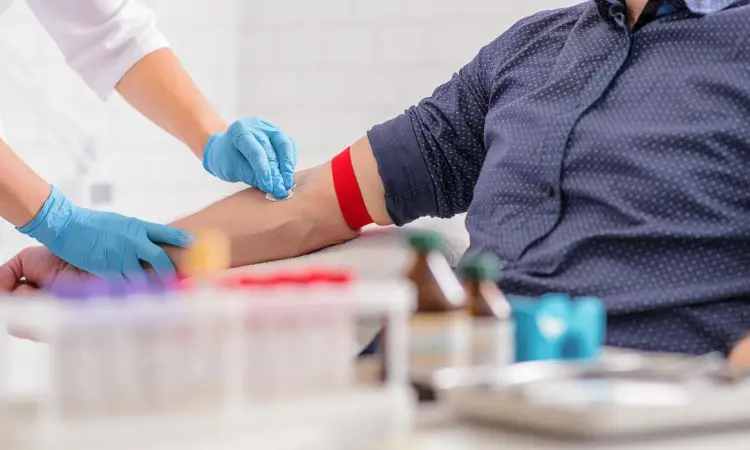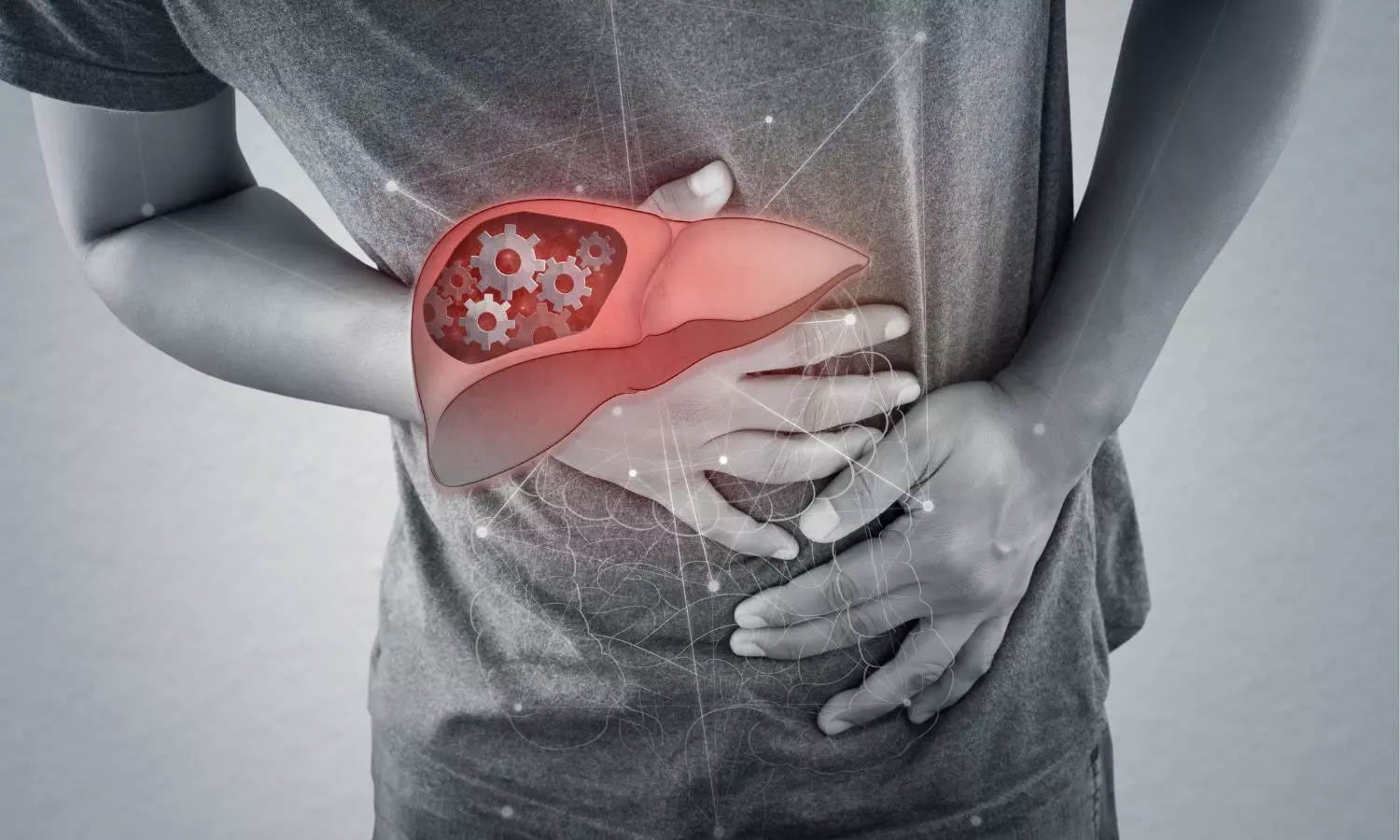- Home
- Medical news & Guidelines
- Anesthesiology
- Cardiology and CTVS
- Critical Care
- Dentistry
- Dermatology
- Diabetes and Endocrinology
- ENT
- Gastroenterology
- Medicine
- Nephrology
- Neurology
- Obstretics-Gynaecology
- Oncology
- Ophthalmology
- Orthopaedics
- Pediatrics-Neonatology
- Psychiatry
- Pulmonology
- Radiology
- Surgery
- Urology
- Laboratory Medicine
- Diet
- Nursing
- Paramedical
- Physiotherapy
- Health news
- Fact Check
- Bone Health Fact Check
- Brain Health Fact Check
- Cancer Related Fact Check
- Child Care Fact Check
- Dental and oral health fact check
- Diabetes and metabolic health fact check
- Diet and Nutrition Fact Check
- Eye and ENT Care Fact Check
- Fitness fact check
- Gut health fact check
- Heart health fact check
- Kidney health fact check
- Medical education fact check
- Men's health fact check
- Respiratory fact check
- Skin and hair care fact check
- Vaccine and Immunization fact check
- Women's health fact check
- AYUSH
- State News
- Andaman and Nicobar Islands
- Andhra Pradesh
- Arunachal Pradesh
- Assam
- Bihar
- Chandigarh
- Chattisgarh
- Dadra and Nagar Haveli
- Daman and Diu
- Delhi
- Goa
- Gujarat
- Haryana
- Himachal Pradesh
- Jammu & Kashmir
- Jharkhand
- Karnataka
- Kerala
- Ladakh
- Lakshadweep
- Madhya Pradesh
- Maharashtra
- Manipur
- Meghalaya
- Mizoram
- Nagaland
- Odisha
- Puducherry
- Punjab
- Rajasthan
- Sikkim
- Tamil Nadu
- Telangana
- Tripura
- Uttar Pradesh
- Uttrakhand
- West Bengal
- Medical Education
- Industry
Breaking Barriers: Hepatitis C Treatment safe and may be continued in alcohol use disorder

In a groundbreaking study, researchers have found that alcohol use and alcohol use disorder (AUD) should not be used as criteria for determining eligibility for hepatitis C treatment. The study, conducted within the US Department of Veterans Affairs healthcare system, challenges the common practice of requiring patients to abstain from alcohol before receiving direct-acting antiviral (DAA) therapy for chronic hepatitis C virus (HCV) infection.
The study results were published in the journal JAMA Network Open: Gastroenterology and Hepatology.
HCV is a serious viral infection that affects millions of people worldwide and can lead to severe liver damage if left untreated. Achieving sustained virologic response (SVR), which means the virus is undetectable for 12 weeks or more after treatment, is a crucial goal in HCV treatment. American Association for the Study of Liver Diseases (AASLD) treatment guidelines state that candidates for HCV treatment should be abstinent from alcohol for a minimum of 6 months before initiating treatment. However, there is uncertainty on how alcohol usage affects reaching SVR. Hence researchers from the U.S.A. conducted a retrospective cohort study to evaluate whether alcohol use at DAA treatment initiation is associated with decreased likelihood of sustained virologic response (SVR).
The study included data of the patients, retrieved from the electronic health records of the US Department of Veterans Affairs (VA), born between 1945 and 1965 and who were dispensed DAA therapy between January 1, 2014, and June 30, 2018. Patients were categorized into groups, including those who were abstinent without a history of AUD, those who were abstinent with a history of AUD, and those with lower-risk alcohol consumption, moderate-risk consumption, and high-risk consumption or AUD. The primary outcome of the study was SVR, defined as undetectable HCV RNA for 12 weeks or longer after completing DAA therapy. Achieving SVR is a crucial goal in HCV treatment, as it indicates that the infection has been effectively cleared.
Findings:
- Among 69 229 patients who initiated DAA therapy, 65 355 (94.4%) achieved SVR.
- The patients with high-risk alcohol consumption or AUD did not show lower odds of achieving SVR compared to those who were completely abstinent from alcohol.
Thus, this study's results challenge these outdated practices and have the potential to influence clinical guidelines and policies related to HCV treatment. It paves the way for more inclusive access to DAA therapy, offering hope to a broader range of patients who urgently need treatment to combat this life-threatening infection.
Further reading: Cartwright EJ, Pierret C, Minassian C, et al. Alcohol Use and Sustained Virologic Response to Hepatitis C Virus Direct-Acting Antiviral Therapy. JAMA Netw Open. 2023;6(9):e2335715. doi: 10.1001/jamanetworkopen.2023.35715
BDS, MDS
Dr.Niharika Harsha B (BDS,MDS) completed her BDS from Govt Dental College, Hyderabad and MDS from Dr.NTR University of health sciences(Now Kaloji Rao University). She has 4 years of private dental practice and worked for 2 years as Consultant Oral Radiologist at a Dental Imaging Centre in Hyderabad. She worked as Research Assistant and scientific writer in the development of Oral Anti cancer screening device with her seniors. She has a deep intriguing wish in writing highly engaging, captivating and informative medical content for a wider audience. She can be contacted at editorial@medicaldialogues.in.
Dr Kamal Kant Kohli-MBBS, DTCD- a chest specialist with more than 30 years of practice and a flair for writing clinical articles, Dr Kamal Kant Kohli joined Medical Dialogues as a Chief Editor of Medical News. Besides writing articles, as an editor, he proofreads and verifies all the medical content published on Medical Dialogues including those coming from journals, studies,medical conferences,guidelines etc. Email: drkohli@medicaldialogues.in. Contact no. 011-43720751



